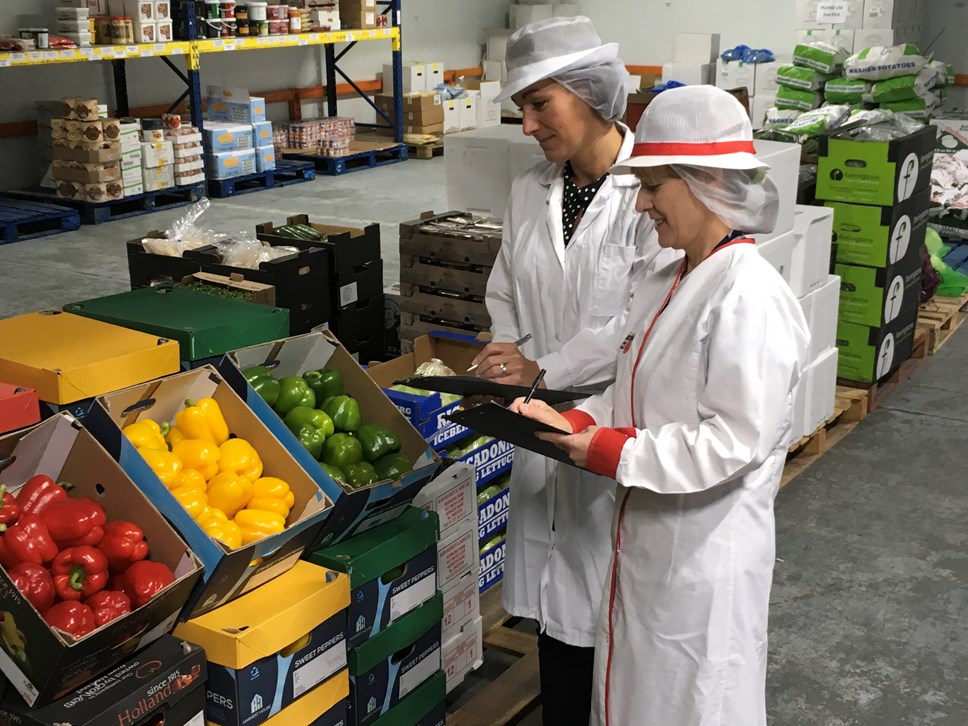
Local approach the order of the day for school lunches in Lancashire
More than half of the £11.5 million Lancashire County Council spends each year to provide nutritious meals for schools and care homes is used to procure food from Lancashire, new figures have revealed.
The county council procures around £13 million of food and food supplies annually, with Schools & Residential Care Catering (SRCC) being the largest purchaser at £11.5m of this value. As the key stakeholder, SRCC operates to a sustainable food procurement strategy that considers the economic, environmental, social and health aims connected to food.
Currently, 100% of the county council's tendered food contracts are considered local – defined as being within a 35-mile radius of Preston – of which 75% are classified as SMEs. In addition, more than 50% of SRCC annual spend on food is grown, reared, produced, or sourced from Lancashire, contributing between £24-28m to the local economy every year.
The figures have been released by Lancashire County Council as councillors discuss the importance of providing children in Lancashire schools with a healthy, balanced diet at its full council meeting on Thursday 26 May.
The county council's catering service provides meals for around 90% of Lancashire primary schools and 35% of secondary schools.
Nutritional standards are in place for school meals in England, which aim to ensure that food is nutritious and of high quality and promotes good health and eating behaviour among pupils.
In Lancashire, SRCC provides school customers with a published menu range that is compliant with school food standards and accredited to Soil Association Food for Life Silver Award (FFL) and Sugarwise Gold Award. The FFL accreditation places additional requirements upon cooking methods, the freshness of ingredients and how they are grown or produced. The SUGARWISE catering mark on school menus means that the menus provide options that are low in “free sugars”. These are sugars and sweeteners that need to be limited in the diet because they are contributors to childhood obesity and tooth decay.
There are four levels of Sugarwise award, Bronze, Silver, Gold and Platinum, with each successive award being lower in free sugar content. The latest Fresher Plus Spring Summer menu was measured at 7.6% of calories coming from free sugar content, with this being lower than the 10% requirement for the Gold award. The Platinum award, which the service will be working towards, requires no more than 5% of calories coming from free sugar content.
Both the Gold and Platinum award are in correlation with World Health Organisation guidance for the higher and lower target levels of calorific intake from free sugars.
The focus of the service is to positively influence children's eating habits by ensuring the choices they make are of the highest quality products that contain the best macro and micronutrient contents. The service works to continuously reduce the negative impacts of foods generally higher in fats, saturated fats, salts, and sugar content (HFSS foods).
The following items are all procured in Lancashire, for use in primary and secondary schools:
- Organic milk
- Bespoke school blend cheese
- Reduced sugar yogurts
- UK Farm Assured fresh meats
- UK Farm Assured cooked meats and sandwich fillings
- Prepared vegetables
- Fresh bread and morning goods
- Fresh vegetables, salad items and fruits from Lancashire, when in season
The published menus SRCC provides to schools in Lancashire can be adapted locally to tailor choices to pupil preferences.
County Councillor Jayne Rear, Cabinet Member for Education and Skills, said: "Lancashire County Council is fully committed to ensuring that all children and young people have access to healthy and nutritious meals.
"Catering for the county is a huge undertaking, and we are incredibly proud of our service and the nutritious and tasty meals it produces.
"We care deeply about the quality of the food we provide to our schools and where it comes from, which is why we strive to stay local.
"We also recognise the importance of providing a flexible menu that can be adapted by our schools to meet the needs of their pupils, while adhering to the school food standards."

